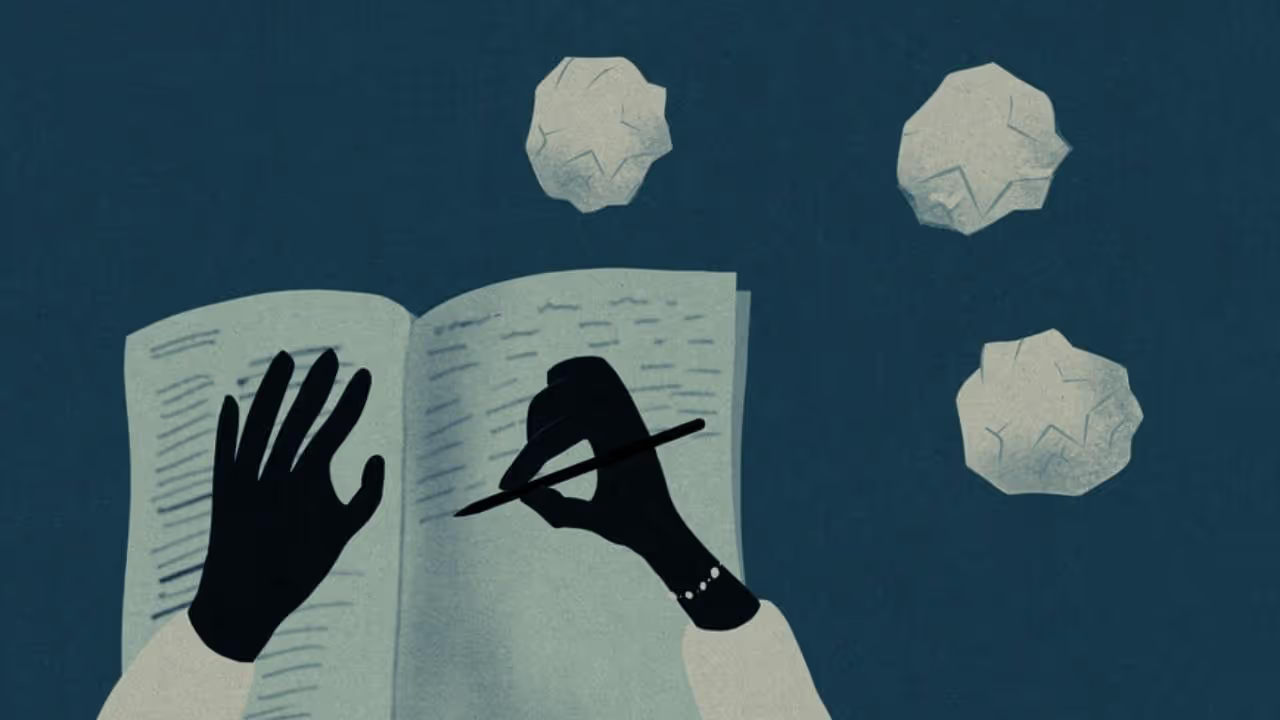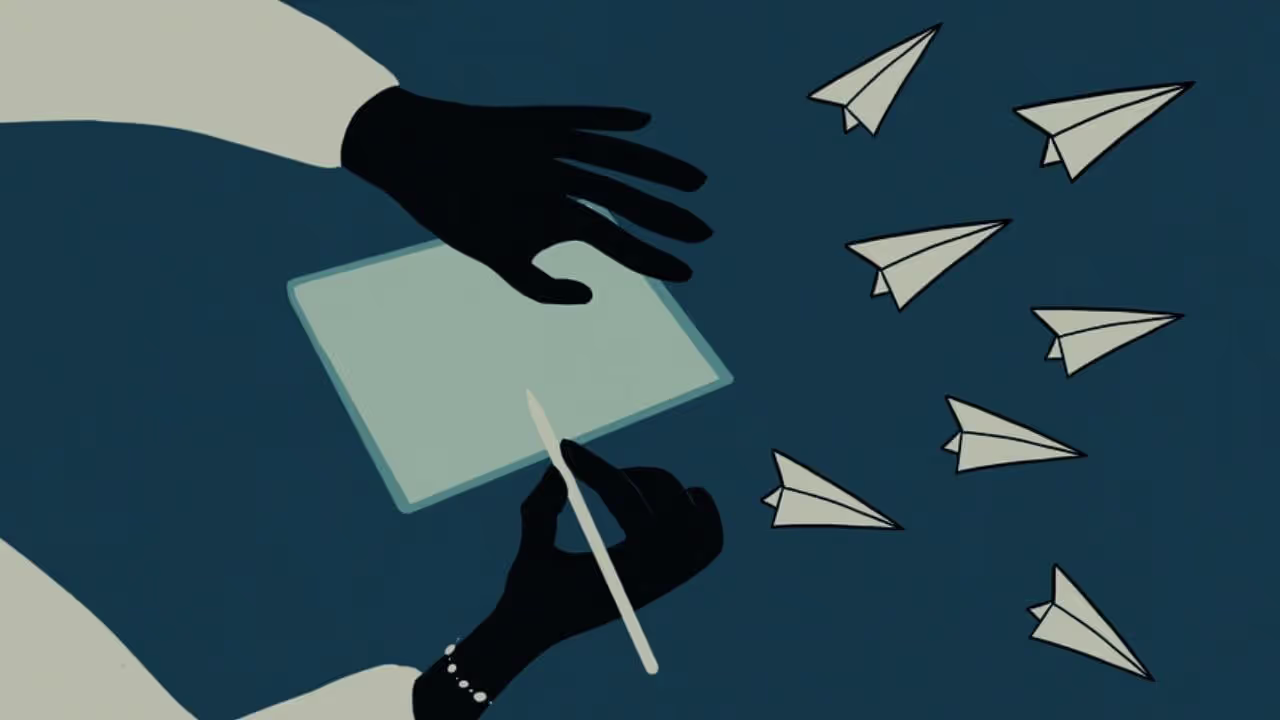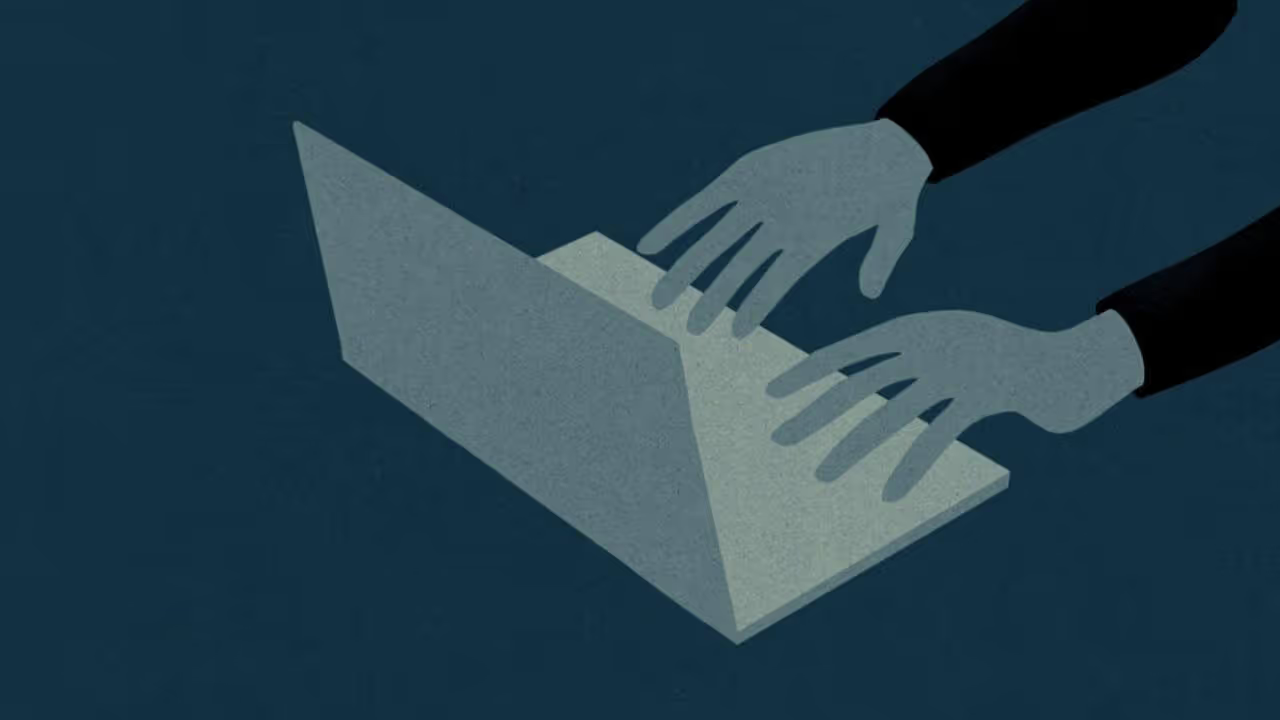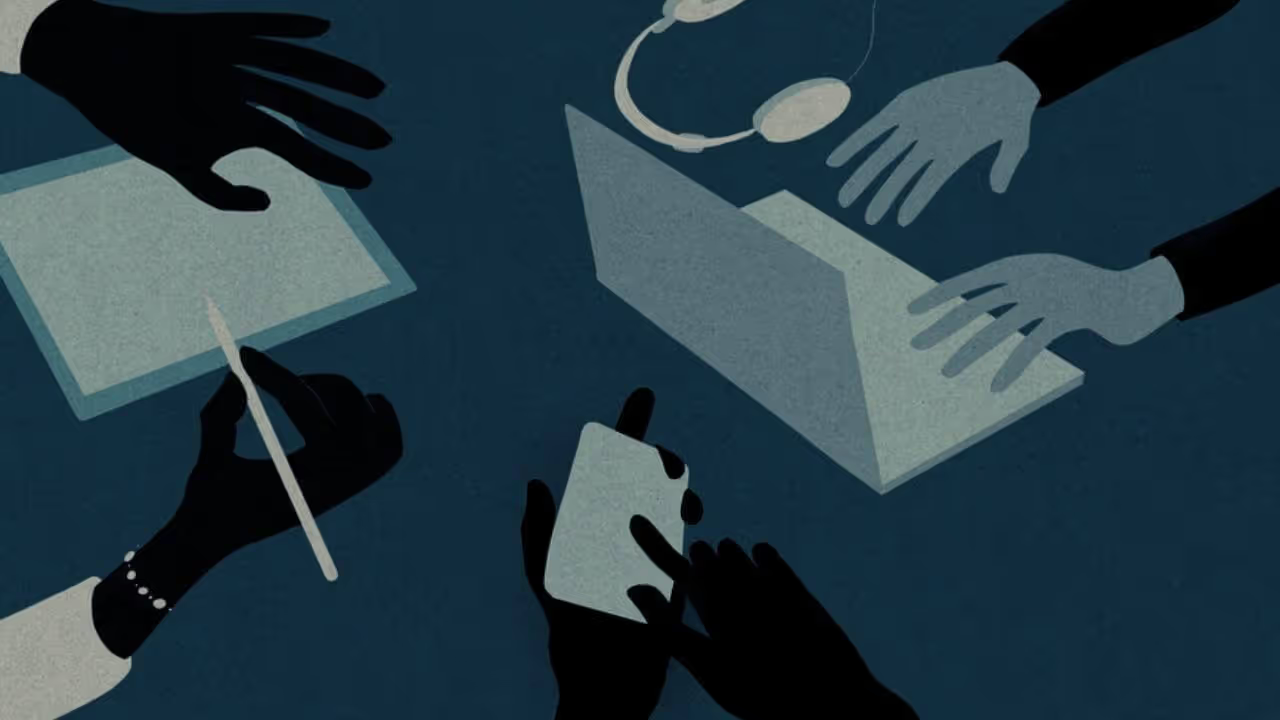For many writers, the question of how to start a story is one of the most panic-inducing. Whether it’s because you know too much or too little about your characters, world, and events, starting stories can feel like a high-pressure balancing act.
How can you start your story in a way that will hook readers—and publishing professionals—but leave them wanting more? How can you set up your world and its stakes without teetering into over-exposition?
This guide unpacks the conundrums that make up the all-important question of how to start a story. We share top tips from The Novelry’s team of writers and editors, as well as million-copy bestselling authors and publishing professionals who know exactly how to start a story.
Whether you’re brewing a great idea or you are on your umpteenth draft and want to really nail the opening, you’ve come to the right place. And if you really want to be an expert on every aspect of starting a story, you’ll see plenty of further resources to explore along the way.
Why the start of your story is important
Before we dive into the details, it’s worth pausing to remember why such an in-depth guide is necessary for what might amount to a minuscule percentage of your novel. Does the first paragraph, the first page, or even the first chapter really matter that much?

How you start your story could cost you readers
How you start your story will decide whether or not your reader sticks with you. It should tell them what to expect in terms of tone and plot, and leave them in no doubt as to why they should care about what happens next.
Your first chapter should also assure the reader that something is going to happen and that your protagonist will be an interesting character to follow.
Your opening could make or break your publishing deal
Literary agents and publishing houses tend to request the first three chapters at the point of submission (but please always check their specific guidelines first, as this can vary). Often, they make a judgment on your book and your writing voice from the very first sentence.
Of course, the pitch or hook for your novel and your cover letter are also very important (and The Novelry can help with both!), but the novel’s opening is vital.
This is your chance to make your voice heard and make a case for your story. As award-winning author Louise Doughty told us during her writing workshop with The Novelry:
When it comes to sending your work to agents, publishers and so on, consciously or subconsciously, they will almost certainly make their mind up by the end of the first page—if not before... It really is ‘first impressions are everything.’
—Louise Doughty
When to write the start of your story
By the time you’re writing the start of your story for the last time, you’ll likely have finished the first draft. Writing a novel is not a linear, step-by-step process!
For those just starting out, this should relieve some of the pressure. Get yourself started, and you can revisit your opening when you know the intricacies of your characters and plot, and the nooks and crannies where tension and fascination lurk.
It’s much easier to write the beginning (and maintain a strong narrative voice) when you know the ending.
So, if you’re reading this and you’re just about to start the writing process, by all means, read on! But be sure to revisit this page and all its linked resources when you come—as you probably will—to revise your opening.
Questions to ask yourself before you think about the opening lines
If you’re about to start writing your opening for the first time, you’ll need to be clear about the core elements of your novel.
And if you’ve finished your first draft and are looking to liven up the opening or first few lines, check whether the answers to these questions are there—even if they’re simmering below the surface.

You can also see whether your initial answers to these questions are still satisfactory in light of how you’ve moved the story forward. Rethinking some of these might not only give you the compelling start you’re looking for, but could actually revolutionize your entire story.
- Who is telling the story? An outside observer? A first-person narrator?
- Who’s the main character? Whose actions will we be following?
- Who/what is the antagonist?
- Where and when are we?
- What’s the situation/problem?
- Why should the reader care?
- What question does your novel answer (or ask!)?
Components commonly found in cracking openings
If you want to start your stories in a way that sticks with readers, this checklist is a good place to begin.
Armed with some of these tools (and note these are not ‘rules’—you won’t need every one of these for your opening!), you might whittle your opening into something even more spectacular.
- A hook/question/mystery/omission
- Interesting character(s)
- What that character wants and/or needs—and what stops them from getting it
- Stakes!
- A strong setting
- Clear tone and mood
- A statement/thesis
- The problem(s) of the first chapter...

Start your story with an engaging hook
By the time a reader finishes your first chapter, there should be some sort of question they’re yearning to answer. It could be something literal, but it needn’t be!
A fine balance between confusion, mystery, and illumination... It’s a tightrope walk, that first chapter. You want the reader drawn in by mystery but not eaten by the grue of confusion, and so you illuminate a little bit as you go—a flashlight beam on the wall or along the ground, just enough to keep them walking forward and not impaling themselves on a stalagmite.
—Chuck Wendig
Whatever your core question, it must be something that we can only resolve by reading on—which makes reading on irresistible.
That’s why having great story hooks is so important. They don’t just sharpen your first few lines; they guide your entire story!
Introduce an interesting character at the start of your story
It’s often a good idea to introduce your protagonist pretty early in your first chapter rather than doing too much world-building. Your reader wants somebody to connect with, so if none of your main characters has a strong presence in the first chapter, it might be difficult to pique the reader’s interest.
Remember: it doesn’t have to mean introducing your protagonist/hero right away! Readers often love a compelling bad guy, so if you think introducing us to your antagonist first works better, why not try writing your opening that way?
Again, this is by no means a hard and fast rule. Starting with someone on the periphery could be powerful. But if you feel the opening is lagging, or not living up to the rest of the story, this could be an interesting component to play with.
It’s possible that your character doesn’t know what they need, or possibly even what they want. Or perhaps what they want isn’t what they need...
Whatever the case, there should be a compulsion or desire, or something they’re lacking, to guide their actions throughout the novel. It’s probably also the crux of their character development. Give us some insight into what that is and the other obstacles that stand in their way.
Set the stakes and the stage for character development
One thing’s for sure: when it comes to story writing, stakes are indispensable.
Stakes can mean different things for different stories in different genres. It doesn’t have to be a high-speed car chase or an axe-wielding murderer!
But any good story starts when something has just changed or is about to. We tend to begin when a blip (or blast) in the character’s everyday life sets them on a new path.
Place the reader in a strong setting
Setting the stage as you start your story can feel like a balancing act. You need to create a vivid, enveloping world, but you don’t want to test your reader’s patience.
We don’t need to know about the weather unless it helps with atmosphere; whether it’s a sultry summer day might be a way of giving a nod to the reader that temperatures are rising! Learn to layer up setting descriptions not just with sensory detail but also to give a flavor of what’s distinctive about your story—for example, in the famous book by George Orwell, the year 1984 includes the sort of bright cold day we might expect in any April, but in this case, the clocks are striking thirteen.
Here, again, being guided by a strong character helps. Instead of telling us everything about the setting in the opening scene, why not focus on what’s important to the character?
It’s also worth thinking about how the place itself might drive the action and plot. In fact, lots of writers (including many of the wonderful writing coaches at The Novelry!) find inspiration for their stories in a setting.
{{blog-banner-3="/blog-banners"}}
Start your story with a definitive tone and mood
Your opening is your introduction—a calling card of sorts. And like meeting new friends or going on a first date, you don’t want to give a false first impression or set unrealistic expectations.
Received wisdom says not to judge a book by its cover, but you wouldn’t want to use an image of a woman clutching a man’s bare and toned torso aboard a wind-tousled ship for a novel about a cozy 1930s murder mystery. That would be confusing!
Of course, you can surprise your reader. But in general—and especially for a debut novel—it can be wise to stick broadly to your chosen genre(s) and the tone you establish (ideally from the very first sentence) within your story.
It could be quite jarring for a reader if a gritty, bleak social commentary becomes a quippy and upbeat jaunt across Europe, for example.
That being said, you don’t want to make your opening sentence bland for fear you may stray from the path you’ve chosen. Having the opening sentence place the reader in a ‘dark and stormy night’ may have been effective once, but it’s pretty played out now.
All you need to do is establish your writing voice and create an overall tone and mood that fits your genre, theme, and setting. You can even do this through action in the opening line; think of that clock striking thirteen, or the day that grandmother exploded.
Hint at the statement/thesis your novel probes
Once again, this can take innumerable forms, but it can be good to give your reader some clues as to what your novel might investigate, prove, or debunk.
In our courses at The Novelry, we often think about this as the lie. What is the lie this book reveals?
Why not look at some great opening scenes from movies and how they convey their overarching themes? Granted, films have a whole different set of tools available, but what can you learn from them? You might find some surprising inspiration!
Include the problem(s) of a first chapter as you start your story
The problem that precipitates a story is usually to do with the state of rest that exists before the story begins. This is typically a pretty indispensable ingredient in a first chapter.
You might also want to give the reader an idea of why this state of rest has been/is about to be disrupted—disclose or hint at your inciting incident.
But remember that in some of the most compelling stories, the apparent or suggested problem is not the real problem that drives the narrative. Instead, there’s a hidden problem. The protagonist is typically blind to it, but your savvy readers will catch it. It could be an unspoken trauma or unrealized threat, for example, or even an obstacle to the thing the protagonist doesn’t know they want!
If you’re interested in these hidden problems, The Novelry’s Advanced Outline Class explores them in more depth, along with shining examples to bring it all to life.
How to start a story: the opening line
If the first chapter can strike panic into a writer’s heart, the first sentence could be the brink of an existential crisis.
Fear not! The first sentence doesn’t have to be a work of genius. Your first words needn’t neatly sum up the truth of life, or even the meaning of your novel. They just need to start your story.

And that’s not only true for a casual reader. Superstar literary agent Marilia Savvides feels just the same about the opening line:
First lines are certainly not everything. I’ve read hundreds of novels I’ve adored which began in very simple, straightforward ways. Even unmemorable beginnings can work well, and often they can be preferable to overly written beginnings that are trying too hard.
—Marilia Savvides
The most important thing is authenticity and confidence. Don’t use the voice of other writers when you begin. Instead, announce your presence on the page from the first sentence with a strong narrative voice, and have confidence in your prose and in your story. Introduce your distinctive voice from the get-go.
There are all sorts of theories and ideas about what constitutes a good opening line... To get scientific about it is a little like trying to catch moonbeams in a jar... There’s one thing I’m sure about. An opening line should invite the reader to begin the story. It should say: Listen. Come in here. You want to know about this.
—Stephen King
If you want some very practical, actionable advice on how to write the opening sentence, we can turn once again to Louise Doughty’s brilliant writing workshop, available to members of The Novelry. She shared a simple nugget of wisdom: start your story with a specific and declarative sentence.
When to start your story
The question of when to start your story might seem to have an obvious answer: at the beginning. Hehe.
But take a moment to reflect on whether that really is the most compelling way to spin your tale.
Bestselling author Val McDermid offered some brilliant advice on structuring a story in her blog post for us, and it works just as well whether you’re writing a short story or a weighty tome. Check out the full article for the ins and outs, but it goes a little like this—we’ll borrow Val McDermid’s real-life example.

How would you start this story with a friend?
Stories, by their very nature, almost always have a beginning, a middle, and an end. But we don’t necessarily tell them in that order.
Think back to anecdotes you’ve shared with your friends over a few drinks. Sometimes, you begin at the beginning. In Val McDermid’s great example, you might begin with: ‘John picked me up to go fishing this morning.’
But other times, you’ve probably decided to start your tale right in the middle—we know starting in media res can be powerful: ‘So there we were, out in the middle of the loch, when John suddenly realized he’d left the back door open.’
And you might even have begun stories at the end, making your friends desperate to learn how you got yourself into such a pickle: ‘You’re probably wondering why I’m sitting here in the pub all wet and covered in fish scales...’
Val McDermid’s advice is simple:
Imagine you’re having a drink with your best friend. Where would you start telling them your story in a way that makes sense?
—Val McDermid
When you’re stuck on how to start a story, pause and think about whether there’s a gripping midpoint you want to show the reader before taking them back to the beginning. Or is revealing your conclusion and then working backward—á la murder mystery, for example—going to be more effective for you?
And if the answer is that beginning at the beginning makes the most sense, then that is, of course, how you should start your story! Ultimately, you must always do things your own way.
Should you start your story with a prologue?
One thing that often comes up when writers are pondering how to start a story is the prologue.
Of course, whether they’re right for you depends on the story you’re telling and how you want to tell it.
Generally speaking, though, people writing in the crime, thriller, mystery, or suspense genres might especially want to consider a punchy prologue.

And if you’re worried about getting published, rest assured that most readers, agents, and publishers are open to prologues.
For example, Marilia Savvides told us:
There’s something about an author dropping us into the middle of the bad thing or the difficult thing, the thing that will come much later, showing you just enough of a peek to grip you, before yanking you away. When done well, and if it’s right for your book, a good prologue can be the answer you’re looking for.
—Marilia Savvides
If you are writing a prologue, remember that it’s not a first chapter. It’s generally more succinct, and rather than part of the ‘body proper’ of the book, it’s more of a supplement to the blurb.
If you want lots of tips on how to write a prologue, we’ve got you covered.
How to know if your opening is ready
Picture this. You’re thinking about submitting your first 1–3 chapters to publishers and agents. Are you tempted to cobble two of your chapters together so you can send them that little bit more, so they get to the really good bit?
Are you silently praying that they’ll skim through the first few pages and make it to that paragraph of genius halfway through chapter 3? To that part where they’ll really ‘get’ the novel?
If that sounds familiar, there’s a chance you haven’t started your story quite where or how you should.
Look at that section you hope they’ll read to. Could that be your opener?
Try cutting out the first paragraph. Try two paragraphs, even three. Are we spared unnecessary exposition and placed straight into the juicy bits?

Common pitfalls
Of course, not all of these approaches are necessarily bad writing, and there’s no one-size-fits-all process for how to start a story. These are just things to consider if you have a needling feeling that the start of your story is not quite right.
- Overexposition
- Overwriting
- Starting your story too early
- Introducing your whole cast of characters

1. Did you start your story with heavy-handed exposition?
When you know a world and a character so well, it’s tempting to tell your reader all about them. But remember that well-worn adage, show, don’t tell? It’s well-worn for a reason!
Literary agent Marilia Savvides echoed this sentiment when thinking about how to start a story:
One of the most common mistakes I come across when reading submissions is stuffing that first chapter with too much information. Too much exposition can kill the drama.
—Marilia Savvides
2. Could the start of your story be overwritten?
Overexposition may be the first and most common mistake Marilia mentioned, but a close second was overwriting.
Authors eager for agents to read their beautiful turns of phrase and literary skills in the first pages pick their ‘darling’ sentences—often those that feel profound or poetic—and use them to start a story.
The problem, according to Marilia, is that those beautiful moments are more impactful when scattered throughout the book:
The story must take centre stage. It has to.
—Marilia Savvides
3. Have you given the game away or loaded in all the action?
The start of your story certainly needs to tell us what to expect in terms of tone, genre, and even theme, but generally, it won’t give away the whole plot or be a single-dose serving of the action.
This is often another symptom of wanting to impress agents and publishers right away. But remember, they’ll have the synopsis to get a full sense of where your story is going. There’s no need to pack it all in when you start a story!
4. Have you started your story before it begins?
It can be helpful for you, the author, to know how your protagonist ended up in a sticky situation or why they’re about to undergo drastic change. But readers can get a sense of this throughout the book—you don’t need to info-dump in your story beginnings.
There’s a special pleasure for the reader in piecing it all together. Don’t take it away!
5. Have you introduced all your characters?
An endless conveyor belt of characters might not be the best way to start your story. Generally, we can’t keep track of who’s who if there are a dozen people dancing on the first page!
You might also test your reader’s capacity for attention, investment, and empathy, so start your introductions slowly, lest your reader immediately lose track (or interest).
Top tips for starting a story
Here are a few tips that have worked for writers who have passed through The Novelry’s proverbial doors—whether as writing coaches, guest authors, or members.
If you’re keen to learn about how to start a story, try these steps:
- Get to know your characters
- Get to know your story’s setting
- Write your opening after finishing the first draft
- Revisit and revise your opening often
- Let go of the pressure to dazzle with your first line/page/chapter
- Write in your voice
- Let the character(s) and their actions take center stage
- Get to the heart of the conflict/tension early

Further reading
If you’re hungry for more great resources on how to start a story—and so much more—check out some of these posts from our creative writing blog!
Writing the First Chapter of a Novel
How to Open a Novel with Literary Agent Marilia Savvides
Character Flaws in Fiction (covering how to introduce characters in your novel)
AJ Pearce on Writing a Complex Character
How to Write a Hook for a Novel
Val McDermid’s Crime Fiction: Narrative Structure
10 Amazing Opening Scenes & What Screenwriters Can Learn from Them
The Top 20 TV Show Opening Scenes
6 Rules of Great Storytelling (As Told by Pixar)
Lessons from Ancient Greece—Aristotle on How to Write a Story
Welcome home, writers. Join us on the world’s best creative writing courses to create, write, and complete your book. Sign up and start today.

.avif)

.avif)
.avif)
.avif)
.avif)